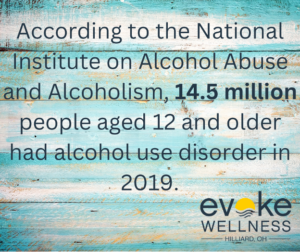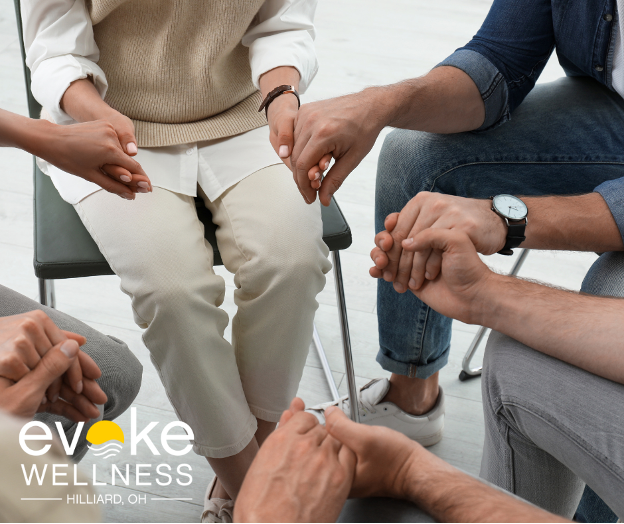You’re out for drinks with friends. How can you tell when you’ve had too much? Knowing the signs of alcohol intoxication empowers you to drink responsibly. This article breaks down key symptoms in an easy-to-understand guide. You’ll learn:
- Physical signs like slurred speech and lack of coordination
- Mental signs like impaired judgment and memory issues
- How intoxication impacts vital functions like breathing
- When alcohol poisoning becomes a medical emergency
- Current data on binge drinking and alcoholism
- Options for alcohol detox and treatment programs
Stay safe and sober with this comprehensive overview of alcohol’s effects on mind and body.
Call us at (833) 949-1347 today or reach out online.
What Are the Symptoms of Alcohol Intoxication?
Visible Signs
When you consume too much alcohol, it can lead to intoxication and impairment. Some telltale signs of being drunk include slurred speech, lack of coordination, and unsteady balance. You may also experience nausea or vomiting as your body tries to expel the excess alcohol.
Mental Effects
Alcohol intoxication can significantly impact your mental state. You might feel confused, dizzy, or have trouble concentrating. In some cases, alcohol can even cause mood swings, aggression, or risky behavior due to lowered inhibitions.
Factors Affecting Intoxication
Several factors influence how quickly alcohol intoxication symptoms set in and their severity. These include your gender, age, body weight, food intake, medications, and overall health. Women tend to feel the effects faster due to differences in body composition and metabolism.
Recognizing the Warning Signs
If you or someone you know exhibits multiple signs like impaired speech, loss of coordination, confusion, or nausea after drinking, it could indicate alcohol intoxication. Being aware of the symptoms can help you take necessary precautions and seek medical assistance if needed.
How Alcohol Affects Your Brain and Body
Alcohol’s Impact on the Brain
Alcohol is a depressant that slows brain activity and impairs cognitive functions like decision-making, judgment, and self-control. It binds to receptors in the prefrontal cortex, affecting this critical area responsible for rational thinking. Over time, heavy drinking can cause shrinkage of the hippocampus, leading to issues with memory formation and recall.
In the short term, alcohol produces a numbing effect by depressing the central nervous system. This lowers inhibitions while impaired motor skills, judgment, and reaction time – increasing the risk of accidents or engagement in risky behaviors.
Effects on Major Organs
The liver bears the brunt when processing alcohol’s toxins. With normal drinking, liver cells can regenerate despite some dying off. But for heavy, long-term drinkers, continued strain raises the risk of fatty liver disease, fibrosis, cirrhosis, and liver failure.
Alcohol is also hard on the heart and cardiovascular system. It can weaken heart muscles over time, leading to diseases like cardiomyopathy. Binge drinking dehydrates the body and increases risks of stroke and high blood pressure.
Alcohol Withdrawal Dangers
When someone dependent on alcohol stops drinking, their brain chemistry is disrupted, causing uncomfortable and potentially dangerous withdrawal symptoms like tremors, anxiety, nausea, and even seizures. Medically-supervised detox through programs using medication-assisted treatment (MAT) helps restore brain function and manage cravings safely.
The 7 Stages of Alcohol Intoxication
Sobriety
- Clear speech and movements
- Minimal effects on coordination or thought processes
Euphoria
Feelings of well-being and relaxation set in. Minor impairment of reasoning and memory may occur, along with a slight loss of motor coordination.
Excitement
Emotional instability and loss of judgment begin. Decreased sensitivity and increased reaction time occur. Vision becomes blurry and speech may start to slur.
Confusion
Dizziness and immense sensory distortion are common. Decreased pain sensitivity, impaired gross motor skills and slurred speech continue to worsen. Nausea may also set in.
Stupor
Little comprehension of the surrounding environment. Severe motor impairment and loss of feeling and consciousness. Vomiting is likely at this stage to prevent asphyxiation.
Coma
Unconsciousness and inability to be roused. Breathing may be impaired enough to induce coma or death due to suppressed respiratory reflexes.
Death
Potential for complete respiratory failure and death from ingesting a massive amount of alcohol in a short period of time. This fatal dose varies per individual.
Behaviors to Watch for When Someone Is Intoxicated
Slurred Speech
One of the most noticeable signs of intoxication is slurred or incoherent speech. As blood alcohol levels rise, the brain’s ability to control muscle coordination diminishes – impacting the mouth and tongue movements needed for clear enunciation.
Loss of Balance
Alcohol is a depressant that slows down the brain’s communication pathways. This can manifest as stumbling, swaying, or an inability to walk in a straight line as motor skills and coordination become impaired.
Mood Changes
From giddiness to anger or sadness, drastic mood swings are common with alcohol intoxication. The brain’s emotional control centers are disrupted, leading to exaggerated or rapidly shifting emotional states.
Poor Judgment
Alcohol reduces the brain’s ability to rationally process information and assess risk. This can result in reckless behavior, impulsive decisions, or a lack of regard for personal safety or that of others.
Drowsiness
As a central nervous system depressant, alcohol can induce feelings of drowsiness or sleepiness. In severe cases, an intoxicated person may pass out or lose consciousness entirely.
Alcohol Intoxication Symptoms FAQs
What are common signs of alcohol intoxication?
- Slurred speech
- Impaired coordination and balance
- Confusion and disorientation
- Nausea and vomiting
- Mood swings and aggression
How much alcohol causes intoxication?
The amount varies based on factors like age, weight, gender and alcohol tolerance. However, having more than 3-4 drinks in 2 hours for men and 2-3 drinks for women can lead to intoxication.
How long do intoxication symptoms last?
Symptoms peak around 30-90 minutes after drinking stops but can linger 8-24 hours depending on how much was consumed. Severe intoxication may require medical attention.
Is alcohol abuse common?
Yes, alcohol abuse remains a major public health issue. According to the National Institute on Alcohol Abuse and Alcoholism, 14.5 million people aged 12 and older had alcohol use disorder in 2019.

What are treatment options for alcohol abuse?
Inpatient or outpatient rehab programs that include counseling, medications to reduce cravings, and support groups are effective treatment approaches. Detox under medical supervision is often the first step.
Conclusion
With the ability to recognize the signs of alcohol intoxication, you gain insight into your own habits and can make informed decisions about your health. Being aware of the physical, cognitive, and behavioral changes that occur with intoxication allows you to monitor your limits. Understanding the risks associated with alcohol abuse empowers you to seek help if needed through detox, counseling, or treatment programs. Paying attention to statistics reveals the true impacts of alcohol on society. Knowledge is power when it comes to managing your relationship with alcohol. Stay vigilant, stay educated, and stay safe.
Begin Your Journey with Evoke Wellness at Hilliard
If you or a loved one is considering treatment, Evoke Wellness at Hilliard invites you to contact us. Our compassionate team is ready to answer your questions, discuss your needs, and help you take the first steps toward recovery. In Hilliard, you’ll find more than just a treatment program – you’ll discover a community dedicated to your wellness and success. Together, let’s embrace the journey to recovery and the promise of a new beginning. Call us at (833) 949-1347 today or reach out online.



